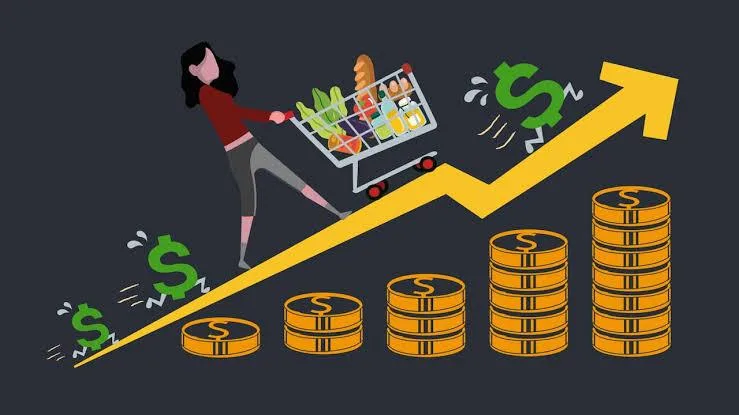
Inflation Effects on Human Rights Violation
How does inflation impact a country and people?
Inflation can have both positive and negative impacts on a country and its people. According to McKinsey, when inflation is within a reasonable range, it can stimulate spending and spur demand and productivity, which can be beneficial for the economy [1].
However, if inflation begins to surpass wage growth, it can be a warning sign of a struggling economy. The rate of inflation can also have a significant impact on consumers, with rising prices leading to a higher cost of living, which can be particularly challenging for lower-income households [2].
A recent Ipsos survey found that inflation is on the rise globally, with people feeling the squeeze of the cost of living increases [3].
Inflation has hit rural America particularly hard, with some experts warning that it could accelerate depopulation in some parts of the country [4]
Inflation Effects on Human Rights Violations in Pakistan
- Understand the concept of inflation
Inflation is defined as the rate at which the general level of prices of goods and services is increasing, and as a result, the purchasing power of a currency is decreasing. Inflation is usually measured as a percentage change in the Consumer Price Index (CPI) or the Wholesale Price Index (WPI).
- Familiarize yourself with human rights violations in Pakistan
Pakistan has been suffering from human rights violations for a long time. Some of the common human rights violations in Pakistan include extrajudicial killings, enforced disappearances, torture, and discrimination against minorities and women.
- Understand the relationship between inflation and human rights violations
Inflation can have a significant impact on human rights violations. When prices rise, people find it difficult to afford basic needs like food, health care, and housing. This can lead to increased crime, social unrest, and political instability. In addition, high inflation can lead to a decline in foreign investment, which can reduce employment opportunities and slow down the economy.
- Analyze the impact of inflation on human rights violations in Pakistan
The rate of inflation has been continuously increasing in Pakistan for the past few years, due to which the purchasing power of the Pakistani rupee is decreasing. This has made it difficult for people to obtain basic needs, which has led to an increase in poverty and crime. Additionally, rising inflation led to a decline in foreign investment, which in turn reduced employment opportunities and slowed the economy.
- Understand the steps taken by the Pakistani government to combat inflation and human rights abuses.
The Pakistani government has taken several measures to tackle the problem of inflation and human rights violations. Some of these measures include raising the minimum wage, providing subsidies for basic necessities such as food and fuel, and investing in infrastructure development to create employment opportunities.
- Stay informed and spread awareness
It is important to be aware of inflation and human rights violations in Pakistan. By staying informed, you can educate others and raise awareness of the problem, which can lead to more significant efforts to address the problem.
Inflation can have a significant effect on human rights in Pakistan, particularly for vulnerable populations. As the cost of living rises, it becomes more difficult for individuals and families to access basic needs such as food, shelter, and health care. This can lead to a number of human rights violations, including:
1. Right to food:
Inflation can make it difficult for people to afford enough food to meet their basic nutritional needs. This can lead to malnutrition and hunger, especially among low-income families and those living in poverty.
2. Right to health:
When inflation drives up the cost of health care, it can make it more difficult for individuals to access needed medical treatment. This can result in incurable diseases and preventable deaths.
3. Right to housing:
As housing costs rise, it becomes harder for people to find affordable and safe places to live. This can lead to homelessness and forced eviction.
4. Right to education:
Inflation can make it difficult for families to afford school fees, uniforms, and other essentials. This can lead to children dropping out of school and missing out on educational opportunities.
5. Right to work:
Inflation can lead to job losses and lower wages, especially for workers in low-wage industries. This can make it difficult for people to support themselves and their families.
Finally, inflation can have a significant impact on human rights violations in Pakistan. By understanding the relationship between inflation and human rights violations, analyzing the impact of inflation in Pakistan, and being aware of the steps taken to address these issues, we can create a more just and equitable society.
Overall, inflation can have a significant impact on human rights in Pakistan. It is important for policymakers to take measures to combat inflation and ensure that vulnerable populations are protected from its effects.
Sources:
- https://www.mckinsey.com/featured-insights/mckinsey-explainers/what-is-inflation
- https://www.weforum.org/agenda/2022/11/what-is-inflation-record-prices-cost-living/
- https://www.weforum.org/agenda/2021/12/rising-prices-inflation-ipsos-survey/
- https://www.npr.org/2022/07/25/1112915507/inflation-rural-america-gas-prices-economy







